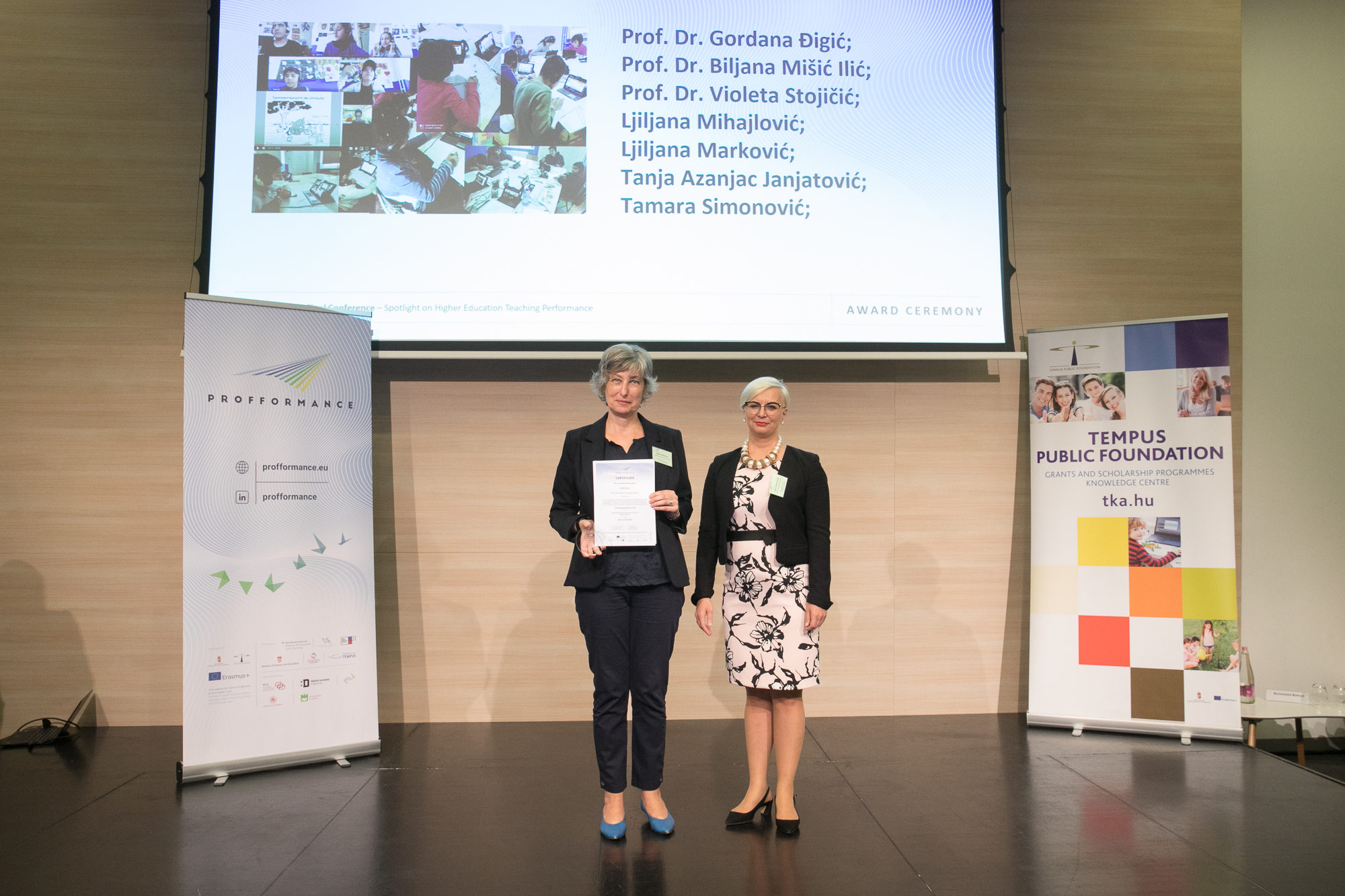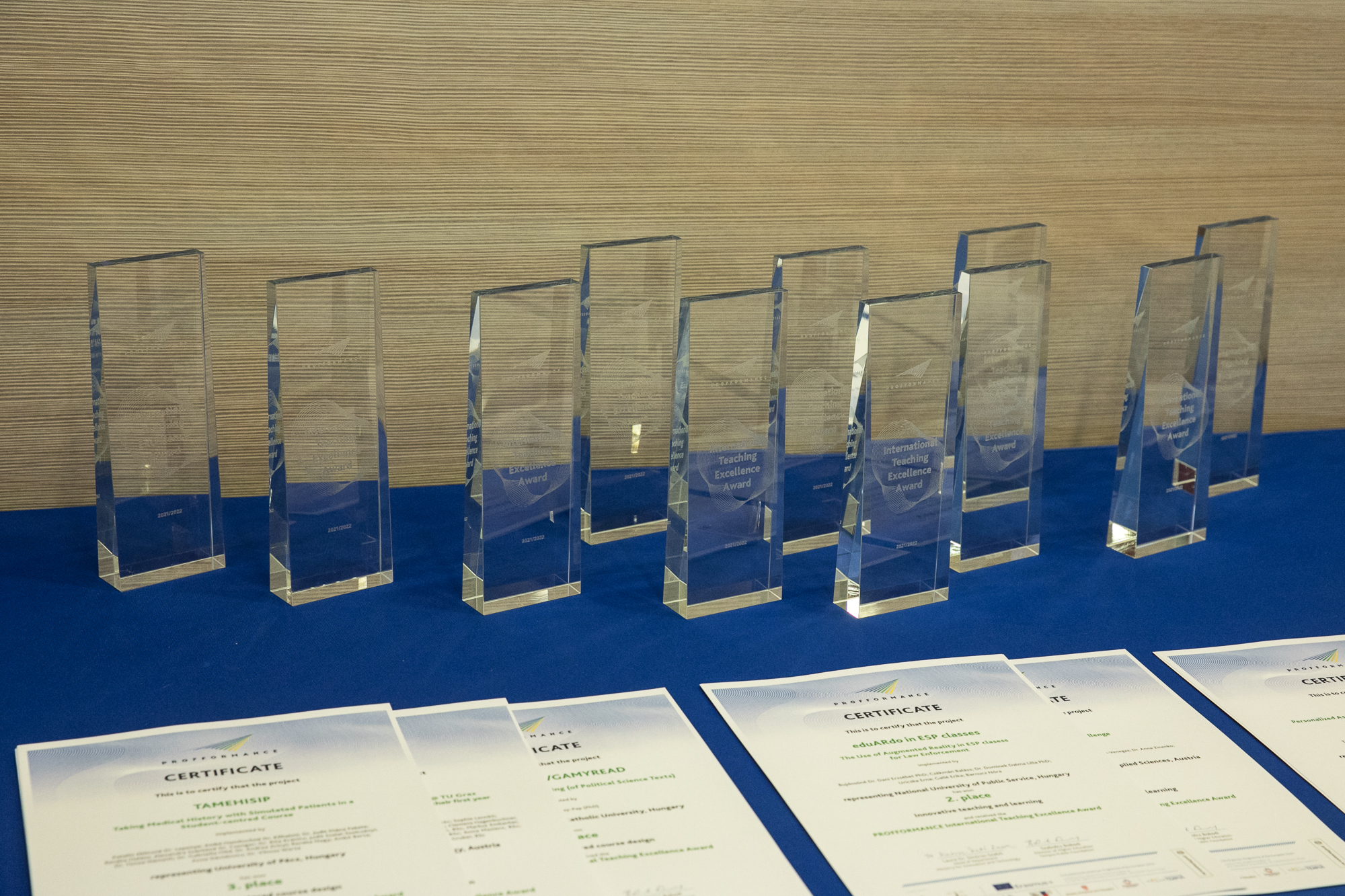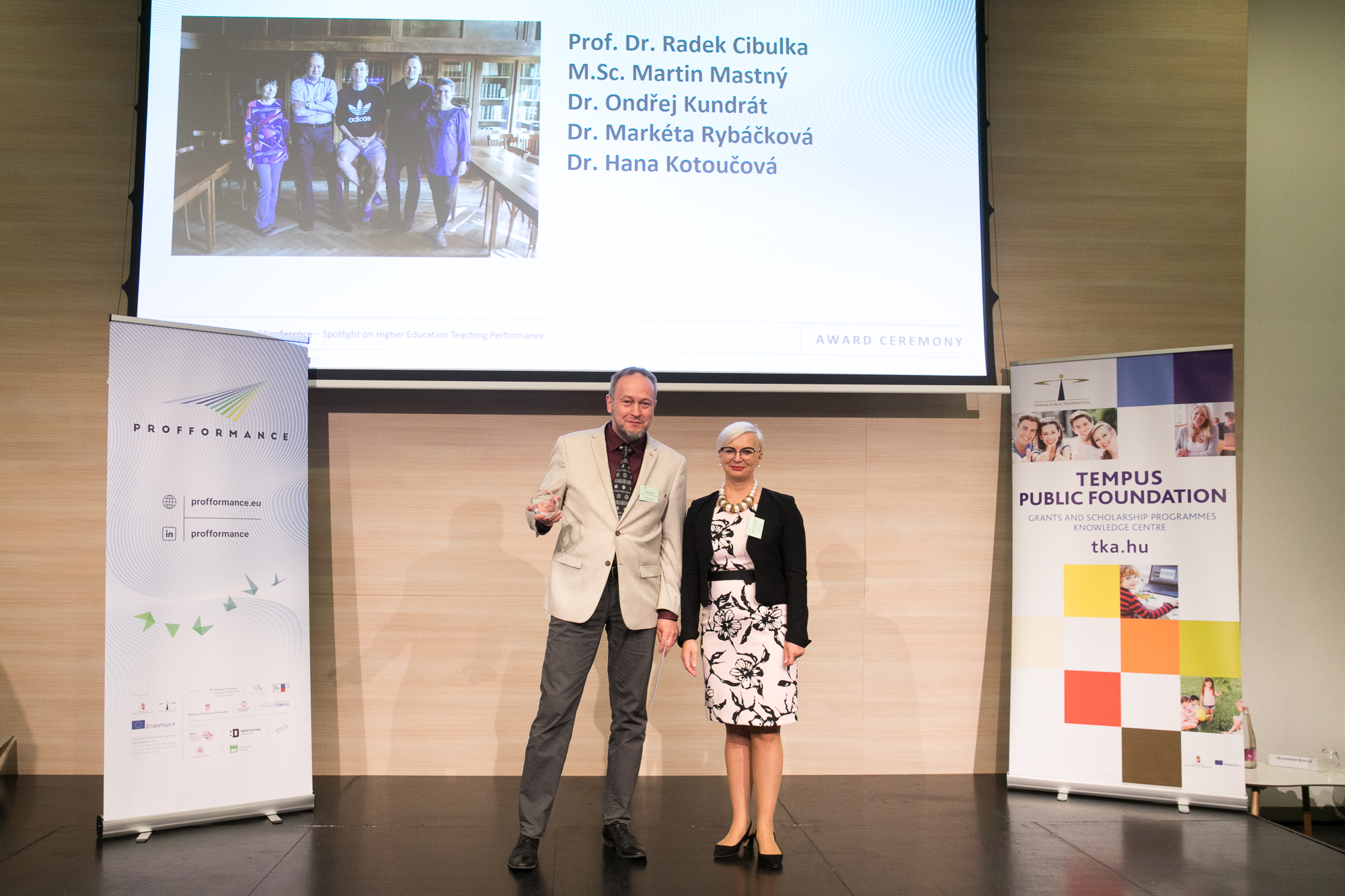2022-06-28 10:27:32
Winners of the first PROFFORMANCE International Higher Education Teacher Award
As part of the PROFFORMANCE final event, titled as "Spotlight on higher education teaching performance" the winners of the first International Higher Education Teacher Award and also the National Bests received their prize and certificate from Laura Sinóros-Szabó, the head of department of the Ministry of Culture and Innovation.
The purpose of this first international higher education teacher award is to identify, acknowledge and recognize excellent teaching practices and to provide opportunities not only for sharing and exchanging best examples, but also to encourage cooperation between the Higher Education Institutions of the European Higher Education Area.
For the award call, 126 high-quality applications from 6 PROFFORMANCE countries (Austria, Croatia, Czechia, Georgia, Hungary, Serbia) have been submitted in 4 categories (Student-centered course design, Innovative teaching and learning, Students’ learning assessment, Impact and mission with and for society). The applications were evaluated by an international jury consisting of independent experts of the field.
13 projects were selected for a prize out of which 11 received absolute prize, 6 have been the national bests among which 4 won both prizes. The best practises were presented in the afternoon parallel sections.
The winners and also all the 126 teaching excellence good practices are available in an online database: https://award.profformance.eu and participants of the team became member of the PROFFORMANCE network, which platform have been also launched at LinkedIn.
Get inspired and find your partners to your next project by browsing the Teaching Excellence Database! Furthermore we kindly invite you to join the PROFFORMANCE network.
Here you may find a list of awardees with photos and names of the project participants:
List of awardees:
https://profformance.eu/assets/media/presentations-final-conf/04-award-ceremony.pdf
Awardees by category
Category 1: Student-centred course design
1st place >> GAMIFYREAD / GAMYREAD - Emese Boksay Pap (Hungary)
- Gamification of Academic Reading (of Political Science Texts)
Laudation:
The proposal describes a student-centered course design using gamification for reading texts written in a foreign language. This gamified design enables students to be proactive in learning. The key principles are related to: adaptive teaching, transformative learning and transparent evaluation. The method accommodates various students’ needs and can be applied in various context, while it is also cost-effective and sustainable. Evidence of continual development according to students responds is presented and there is a good analysis of constraining factors and lessons learned.
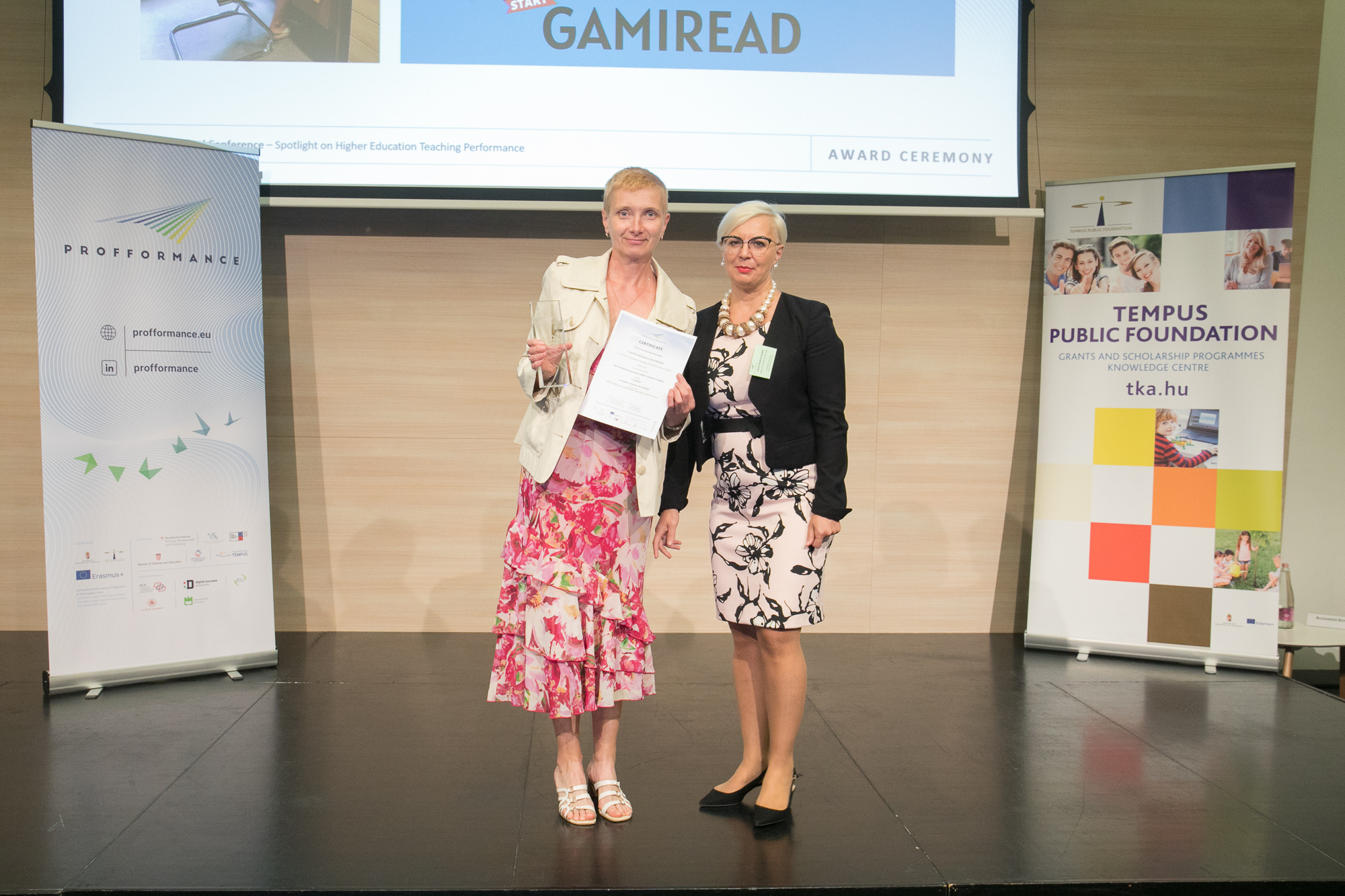
2nd place >> EEatUGraz - Paul Baumgartner (Austria)
- Fundamentals of Electrical Engineering @ TU Graz - A practical exercise
designed for students in their first year
Laudation:
The presented course in electrical engineering supports peer-learning, open discussion culture, which helps to react to the different demands of the heterogeneous student structure. The best students are offered positions as study assistants, who form task forces to tackle different tasks related to teaching. EE at TU Graz stands out due to its very adequate usage of technology, there are lively discussions, teaching and learning on the anonymous platform Discord. Surveys proved that 85% of the students feel well prepared for the following courses and understand the fundamental content of the curriculum and the course’s failure rate has been decreased.
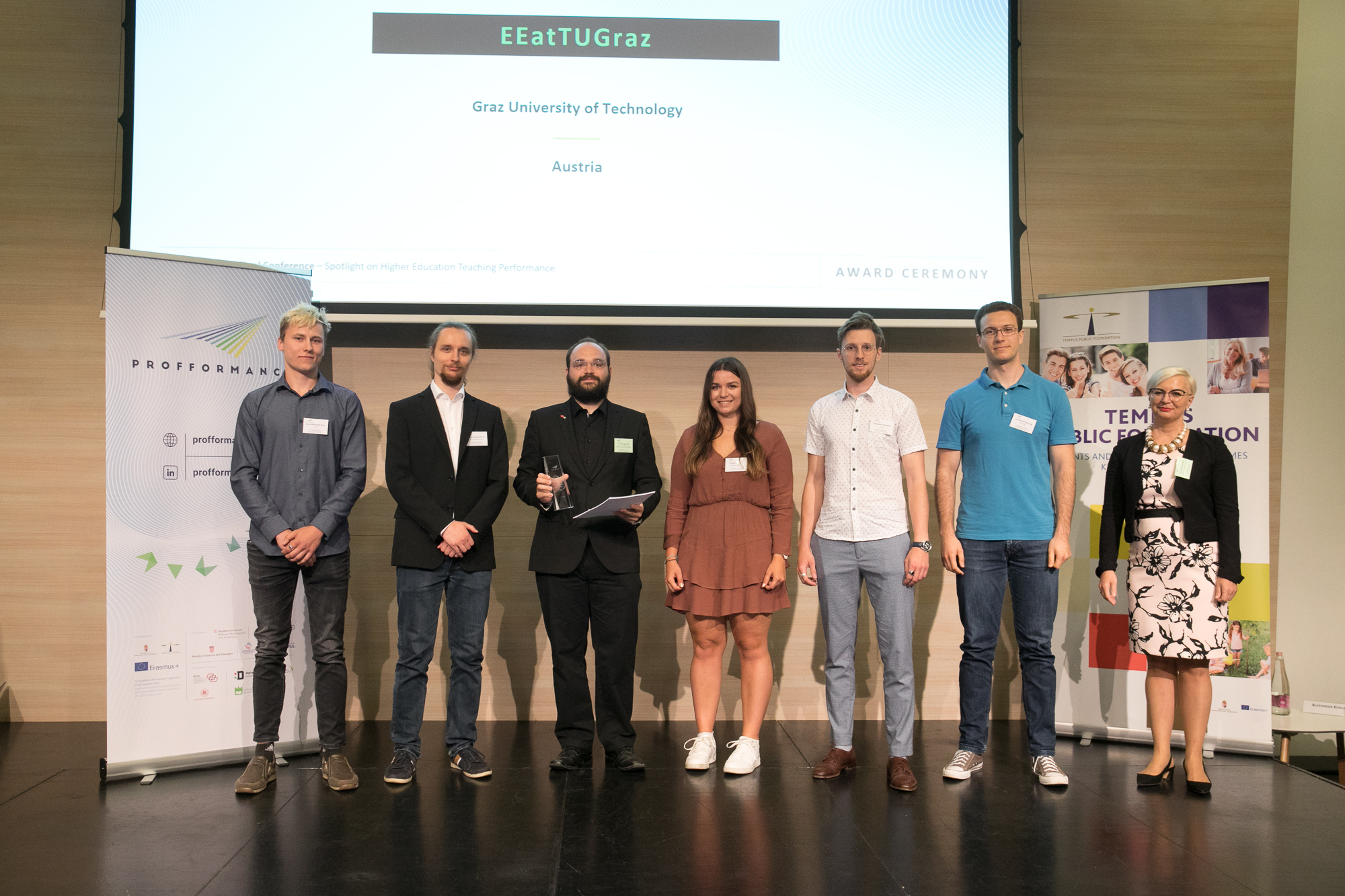
3rd place>> TAMEHISIP - Katalin Eklicsné Lepenye (Hungary)
- Taking Medical History with Simulated Patients in a Student-centred Course
Laudation:
The project offers a medical history taking course in English with the involvement of simulated patients. The course offers a unique educational method combining co-teaching, case-based, simulation-based, experience-based and feedback-based approaches while focusing on the international students’ diverse needs. Education materials and patient profiles were developed jointly by linguists, communication instructors, psychologists and clinicians. Students improve patient-interviewing, problem-solving, and medical reporting skills. Students find themselves in life-like situations where they can learn and make mistakes without causing real harm which causes also a lower stress level.
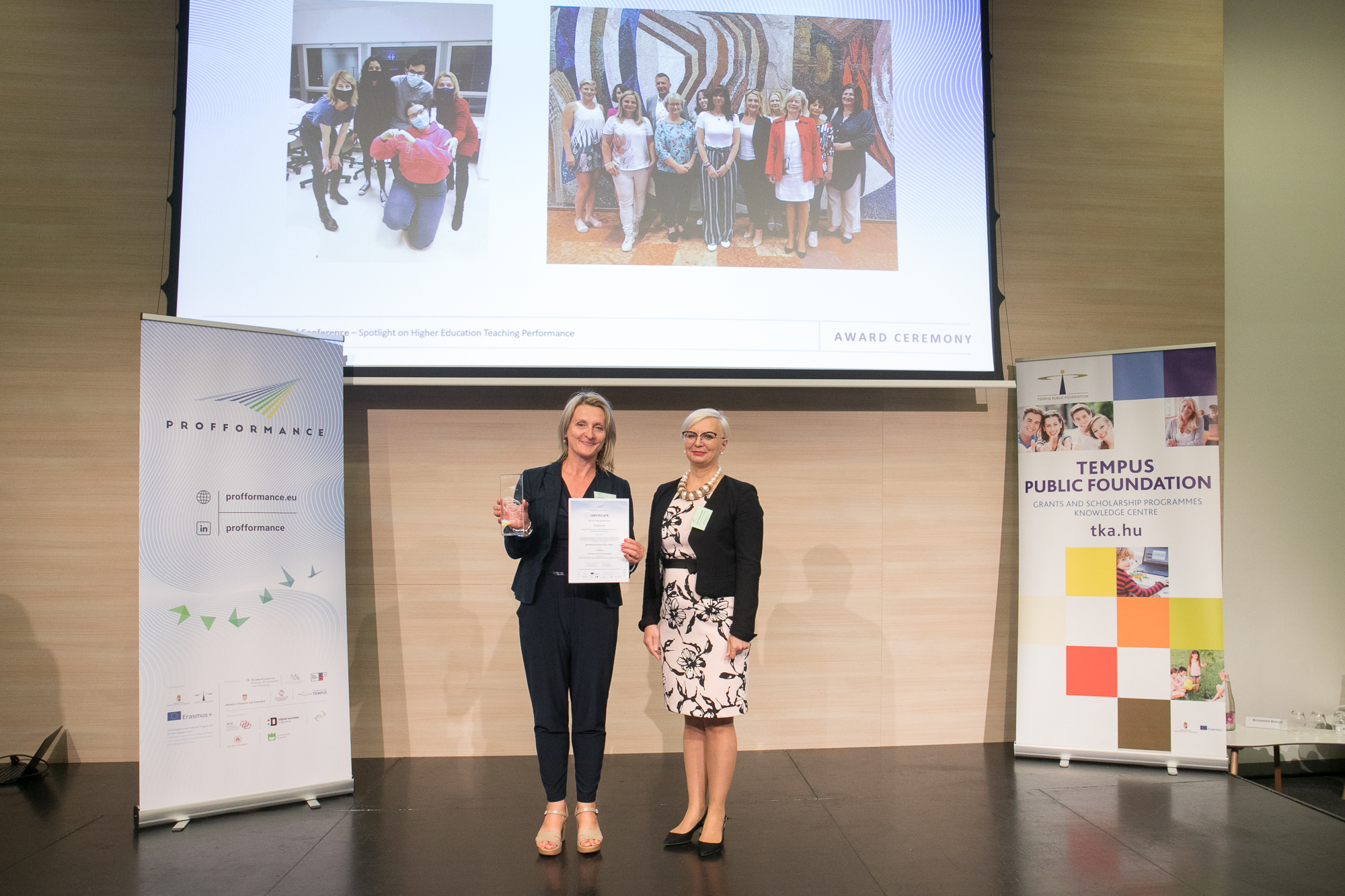
Category 2: Innovative teaching and learning
1st place >> GCSC - Eithne Knappitsch - Anna Zinenko (Austria)
- Global Case Study Challenge
Laudation:
The Global Case Study Challenge (GCSC) represents an innovative and high-impact, career-oriented teaching and learning virtual exchange project, providing teachers and students with intercultural and international experience. The students work on real-life business cases with a focus on corporate social responsibility, change management, corporate communication, merging organisational cultures, learning and development, human resources management and New Work. It also provides access to students with fewer opportunities. Each business case incorporates a corporate sustainable development goal component.
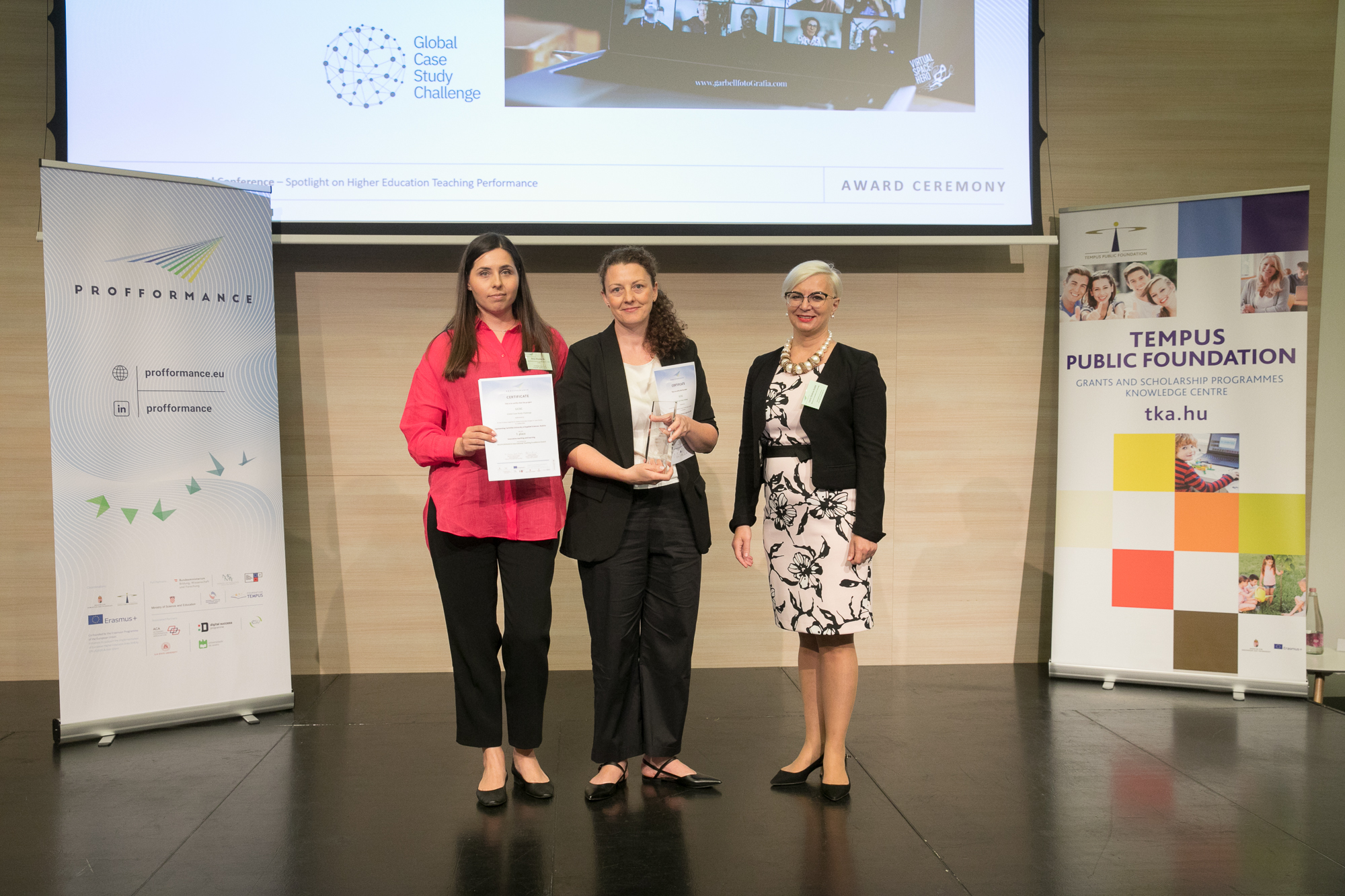
2nd place >> eduARdo in ESP classes - Nóra Barnucz (Hungary)
- The Use of Augmented Reality in ESP classes for Law Enforcement
Laudation:
The proposal is based on a classroom research, which was implemented with study and control groups to investigate the use of Augmented Reality (AR) software to develop vocabulary, communication skills and the digital competence of students of learning foreign languages. It clearly sets out the background, purpose and scope of research. The most important value of the project is that it could lead to the elaboration of the methodology as well as the leading principals of using AR in language learning, which can have an influence on the development of language learning materials of the future.
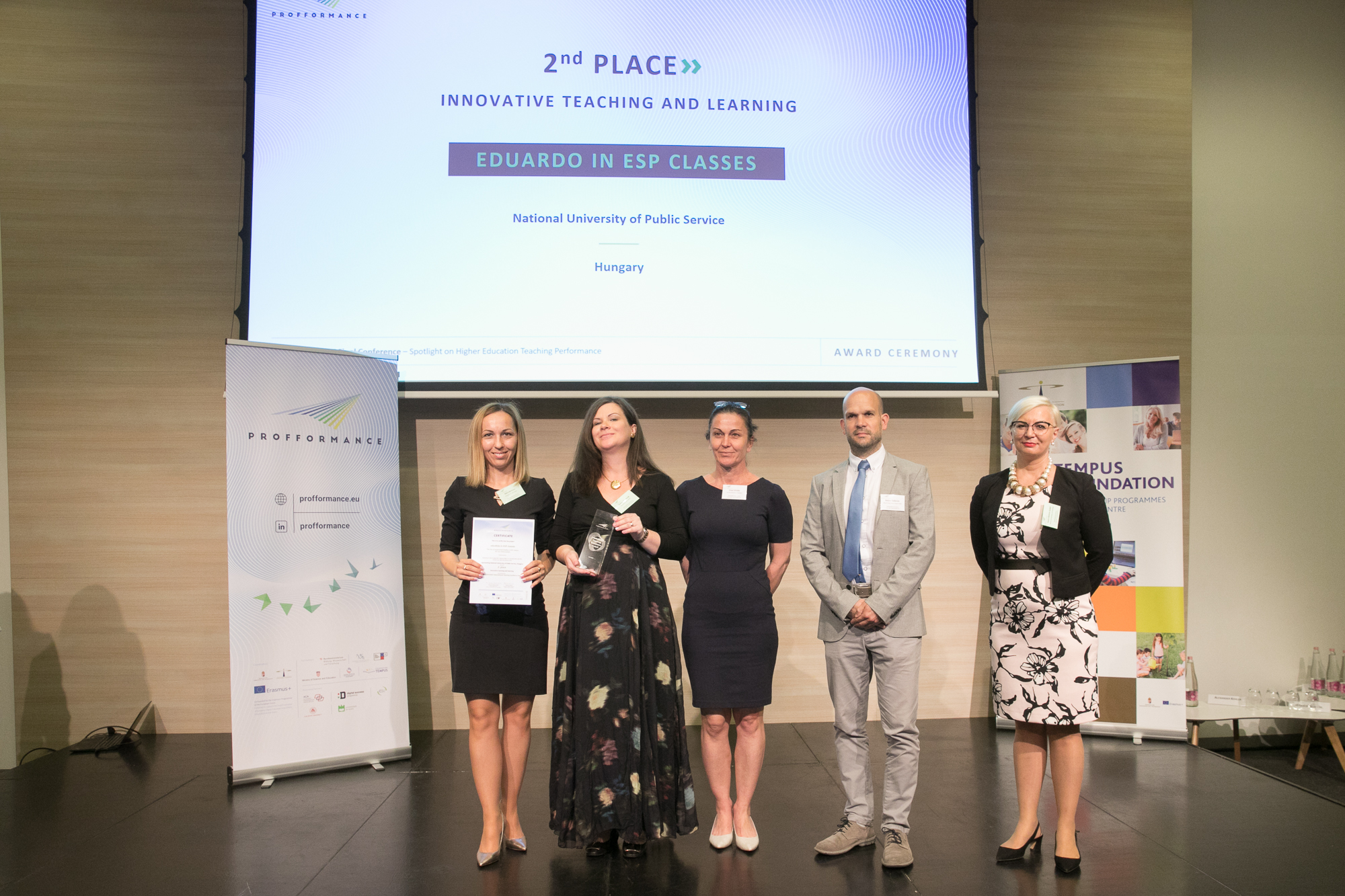
Category 3: Assessing the Student’s Learning
1st place >> PARTERRE - Tamás Zsedrovits (Hungary)
- Personalized Assessment thRough generaTed Exercises foR pRogramming coursEs
Laudation:
The proposal describes the planning and development of a Massive Open Online Course on the basic usage of the MATLAB programming language, which contains continuous and automated assessment. Feedback is essentially obtained from both students and other teachers to further develop teaching methods. The students are expected to create problem sets for practice on their own. As one student states, this is a good example based on the well-structured practical knowledge, so students - become confident when solving any task in MATLAB.
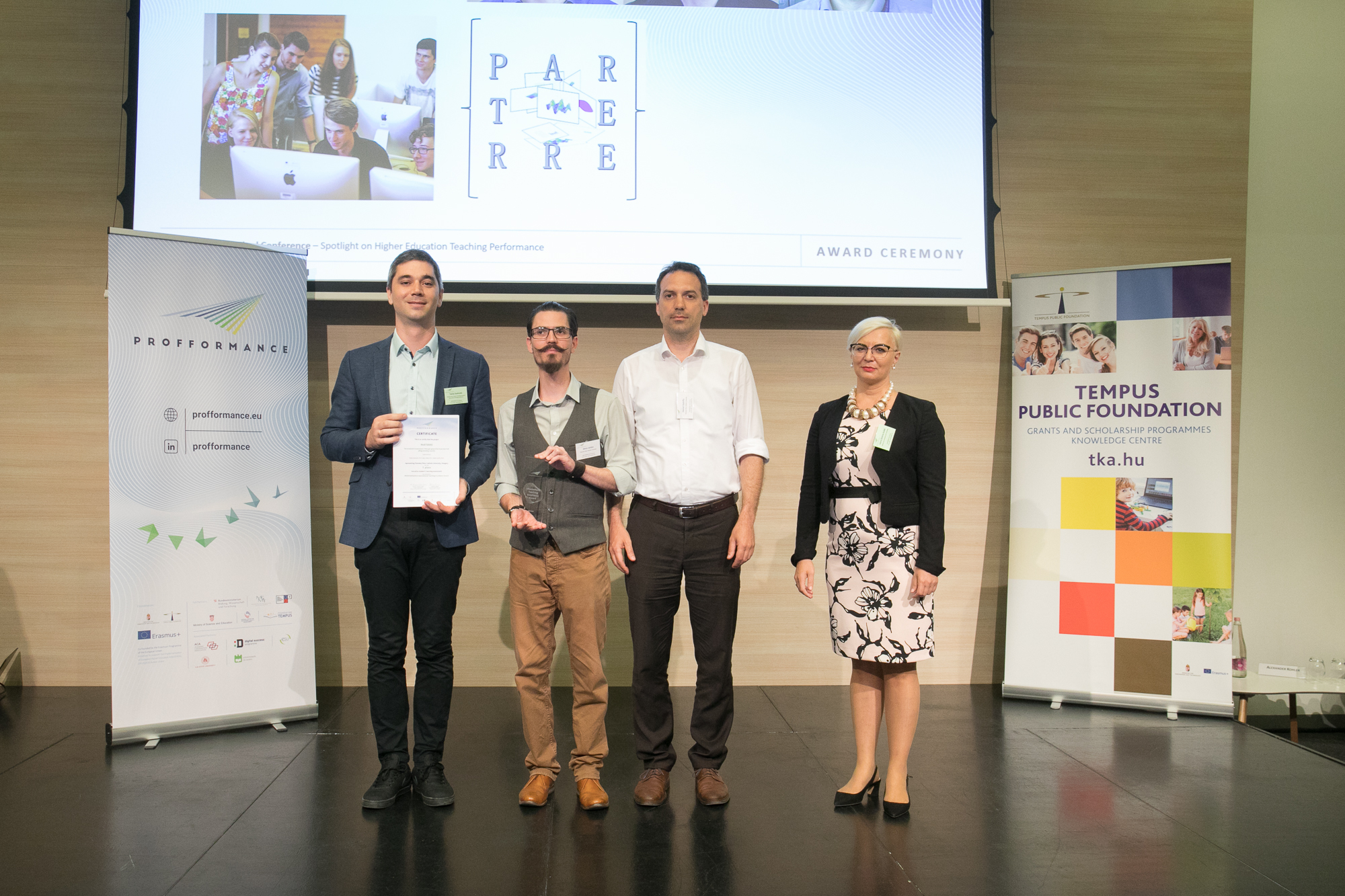
Category 4: Impact and mission with and for the society
1st place >> TBI&HER - Dražen Čular (Croatia)
- Implementation of Non-Government Organisations (NGO) as Teaching Basis in High Education and Research
Laudation:
The main asset of the project is the connection of public, private, and NGO sectors and linking theoretical knowledge to practice in sport science, which directly impacts the community and contributes to a higher quality of education. ICT technology is integrated in the educational process, including assessment and research. The project also covers all horizontal aspects. The outputs are tangible and well described, and the impact is align with the goals of the European Higher Education Area. The project is also self-sustainable and well promoted.
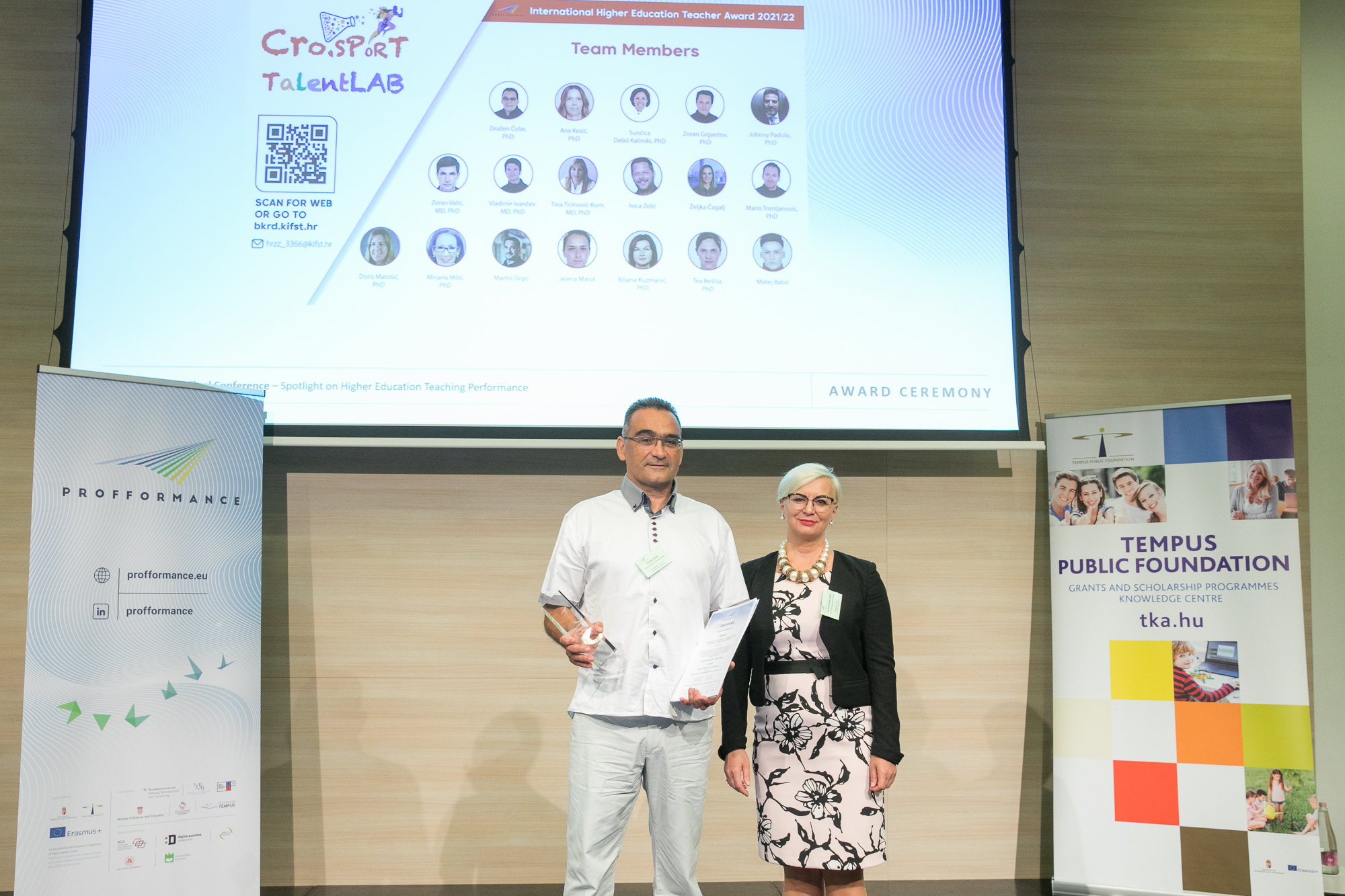
2nd place >> TC - Ulrich Hobusch - Dominik E. Froehlich (Austria)
- TeachingClinic: Meaningful Engagement Through Service-Learning
Laudation:
The proposal describes a project on the collaborative working of teachers and students on school-related real-life challenges. By using design-based research the students try to devise a theory-driven plan to tackle the challenge and thereby deliver a service of immediate value to the teacher. The most important values of the project are the usage of very different, didactic, thoughtfully combined tools and the improved methodology, such as using gamification, coaching model or collaborative solving of real-life problems. It is also to highlight, that the learning environment is continuously updated based on student feedback (qualitative interviews and surveys).

3rd place >> eL-DCforIC - Ljerka Luic (Croatia)
- e-Learning: Digital Competencies for Innovation Culture
Laudation:
The e-Learning project aimed at developing digital competencies for innovation culture. The innovation was implemented along the methodology of "research - knowledge - teaching - creativity - innovation - science - society". The method centres around the student, who is assigned the triple roles of researcher, innovator and lecturer. Extended Reality was used to develop students' motivation to apply active learning. During the implementation process the didactic principles of constructivist learning, situational learning, game-based learning, as well as research-based and collaborative learning were applied. The method lends itself to distance learning, virtual classroom and hybrid teaching contexts.
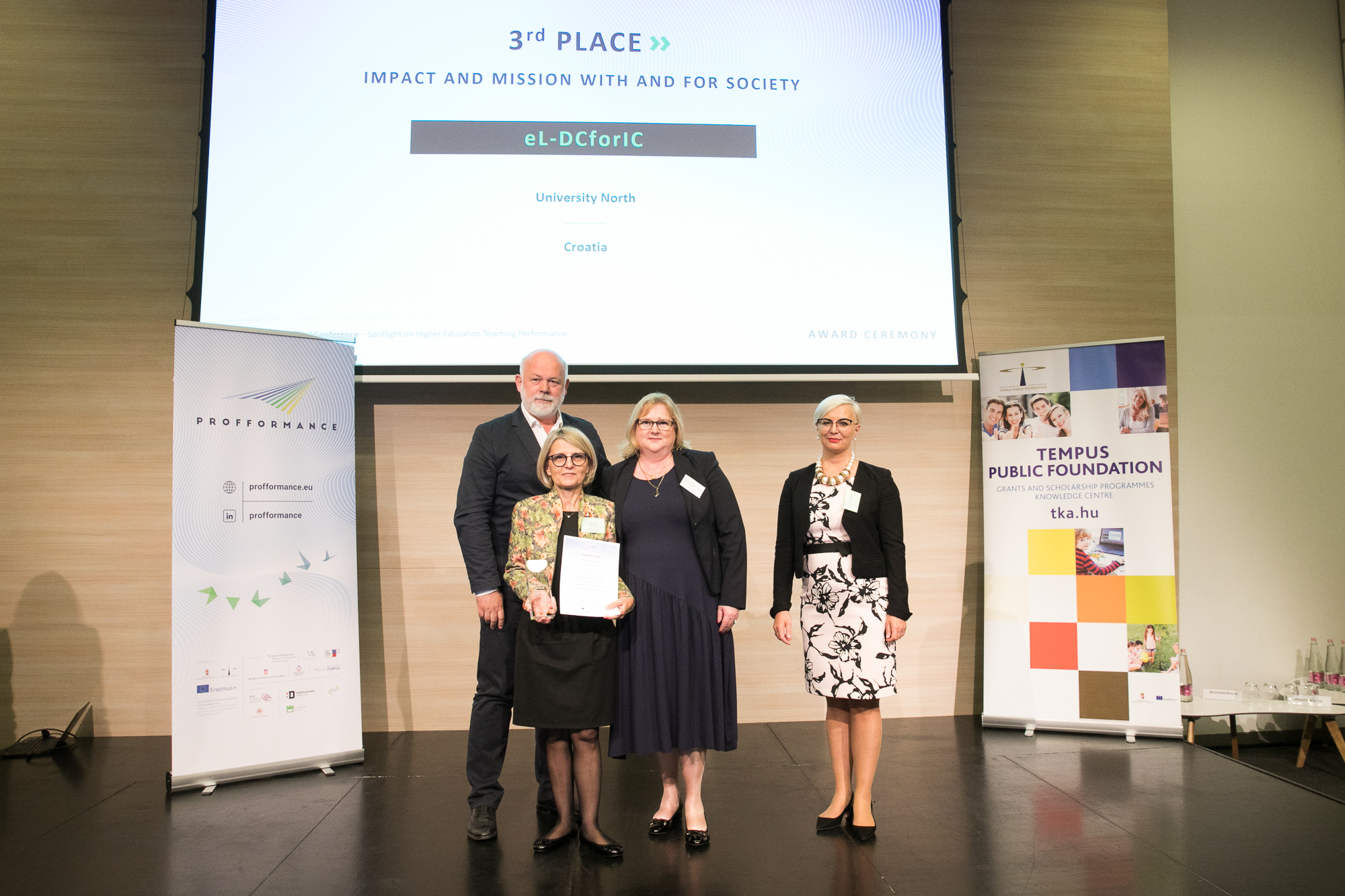
4rd place >> SERVEDU - Ljiljana Markovic (Serbia)
- Service-learning in EFL teachers’ education
Laudation:
The project deals with the application of the service-learning concept in designing and implementing several elective courses, to provide students with a valuable real-life teaching practice. In the new learning environment, students provide education for migrant/refugee children meeting the specific needs of this multicultural/multilingual vulnerable group. It combines formal instruction with the corresponding service activity in the community, where the students gain further understanding of the course content and an enhanced sense of civic responsibility, through direct application of what they study in appropriate social contexts.
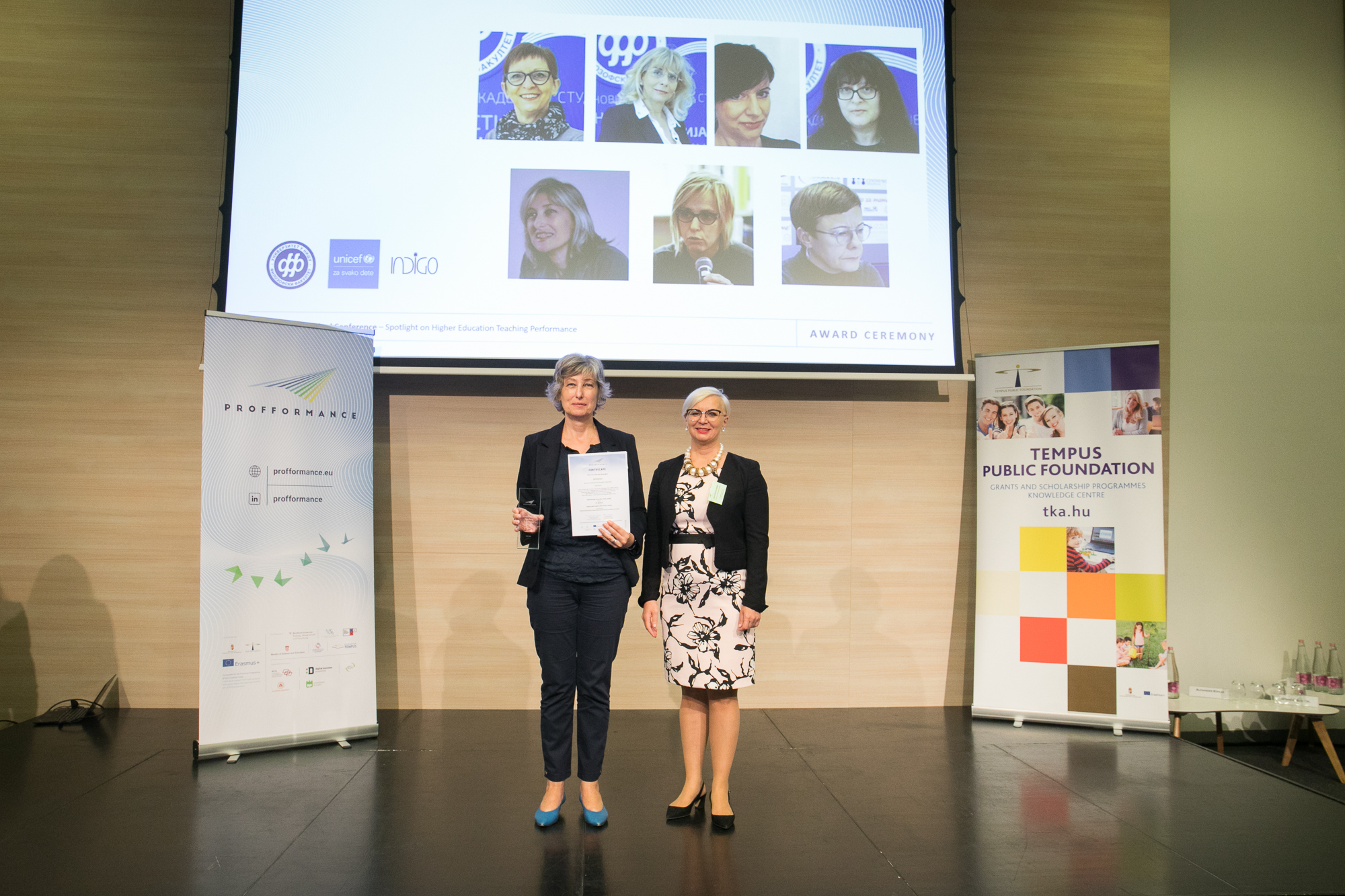
5th place >> Adria Internship - Vjecislav Bohanek - Sibila Borojević Šoštarić (Croatia)
- ADRIA Internship programme: broadening University-Business Cooperation
Laudation:
This STEM good practice refers to the ADRIA Internship Programme complying with the United Nations Sustainable Development Goals. A very well described and justified proposal presents a well-transferrable internship mobility tool solution for enhancing smooth and transparent matching of best-suited students and organisations. A visually attractive platform connects the academic and business sector and is available in English. The whole project is well anchored in theory, despite its narrow focus it seems to be easily transferrable and is also well promoted via numerous channels. It will help students to become employed in the industry after their graduation.
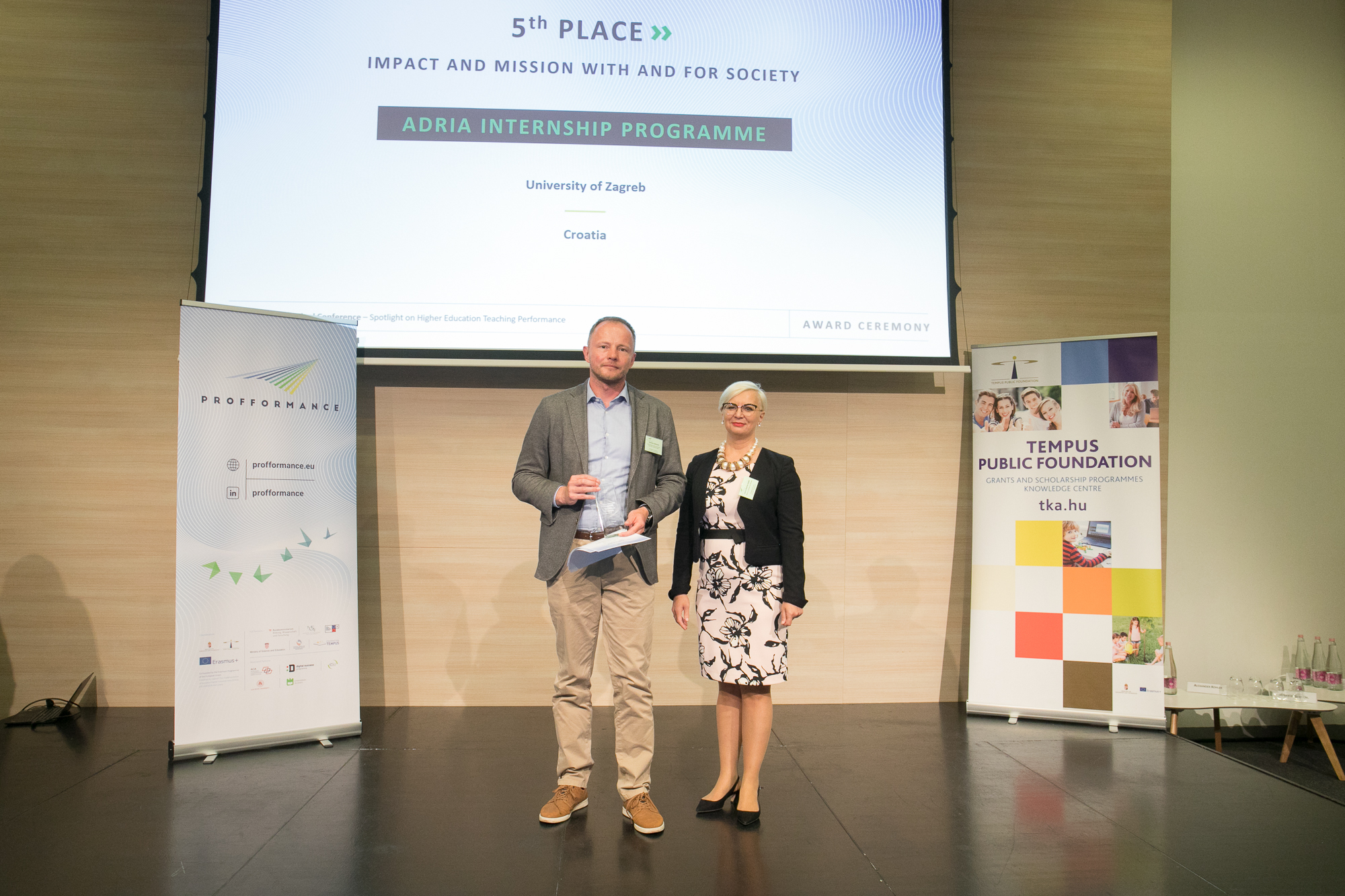
National bests:
- TeachingClinic: Meaningful Engagement Through Service-Learning

- Implementation of Non-Government Organisations (NGO) as Teaching Basis in High Education and Research

Best of Georgia >> Digital Knowledge Trees - Lado Sirdadze (Georgia)
- Converting Course Content into Digital Knowledge Trees in order to Teach, Learn and Use them in Practice in Everyday Life
Laudation:
Converting Course Content into Digital KnowledgeTrees in order to Teach, Learn and Use them in Practice in Everyday Life means taking the course contentgiven in textbooks and in Laws and transform it into Digital Knowledge Trees (DKT), which can be used by students even after the graduation in real-life practice. The proposed methodology has been elaborated in the frame of international collaboration. The knowledge trees prepared by the students are assessed by using the artificial intelligence to compare two digital trees with each-other, which saves time and resources needed for assessment by the professor. The feedback paper is also done automatically.
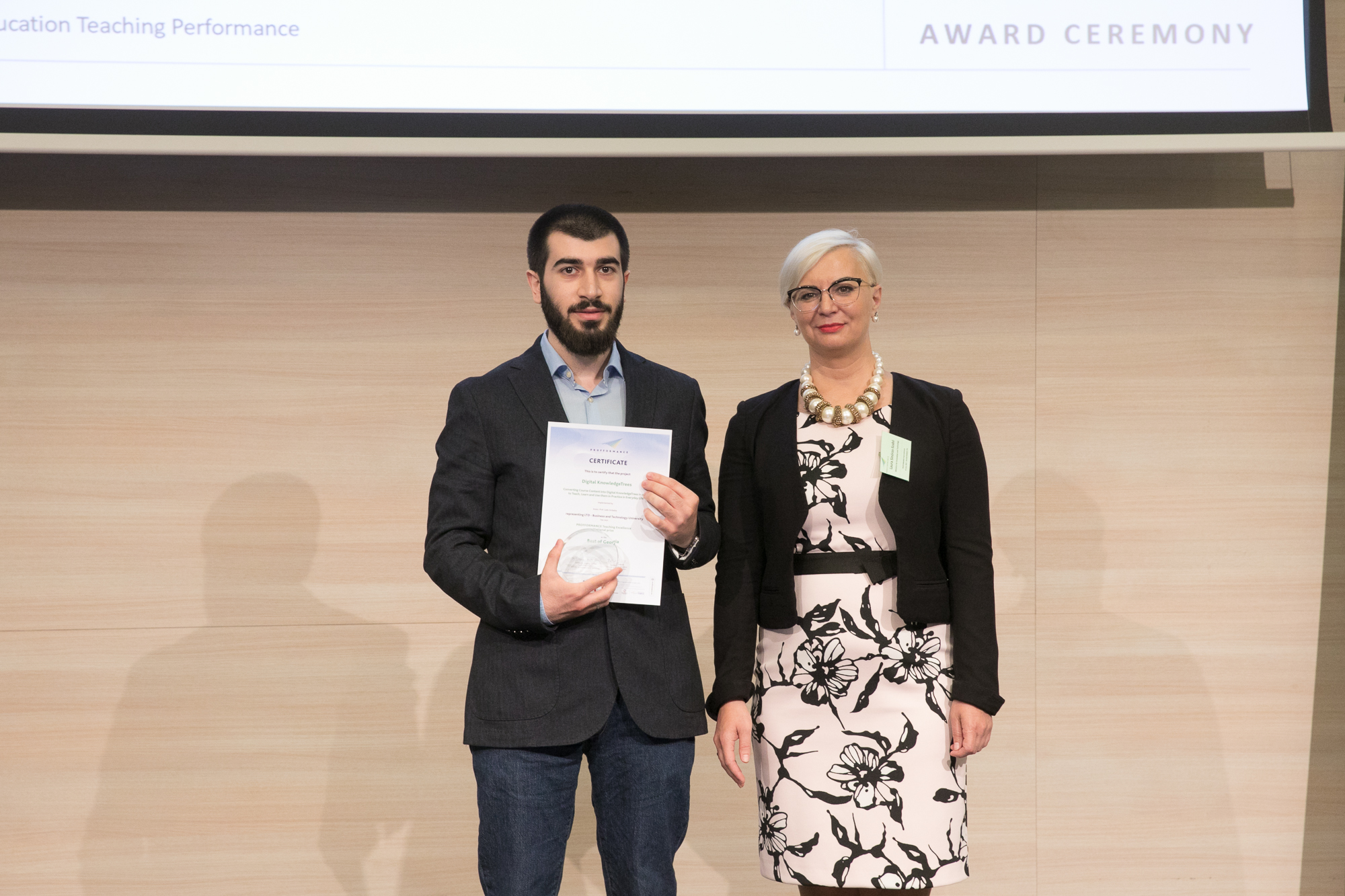
Best of Hungary >> GAMIFYREAD / GAMYREAD - Emese Boksay Pap (Hungary)
- Gamification of Academic Reading (of Political Science Texts)
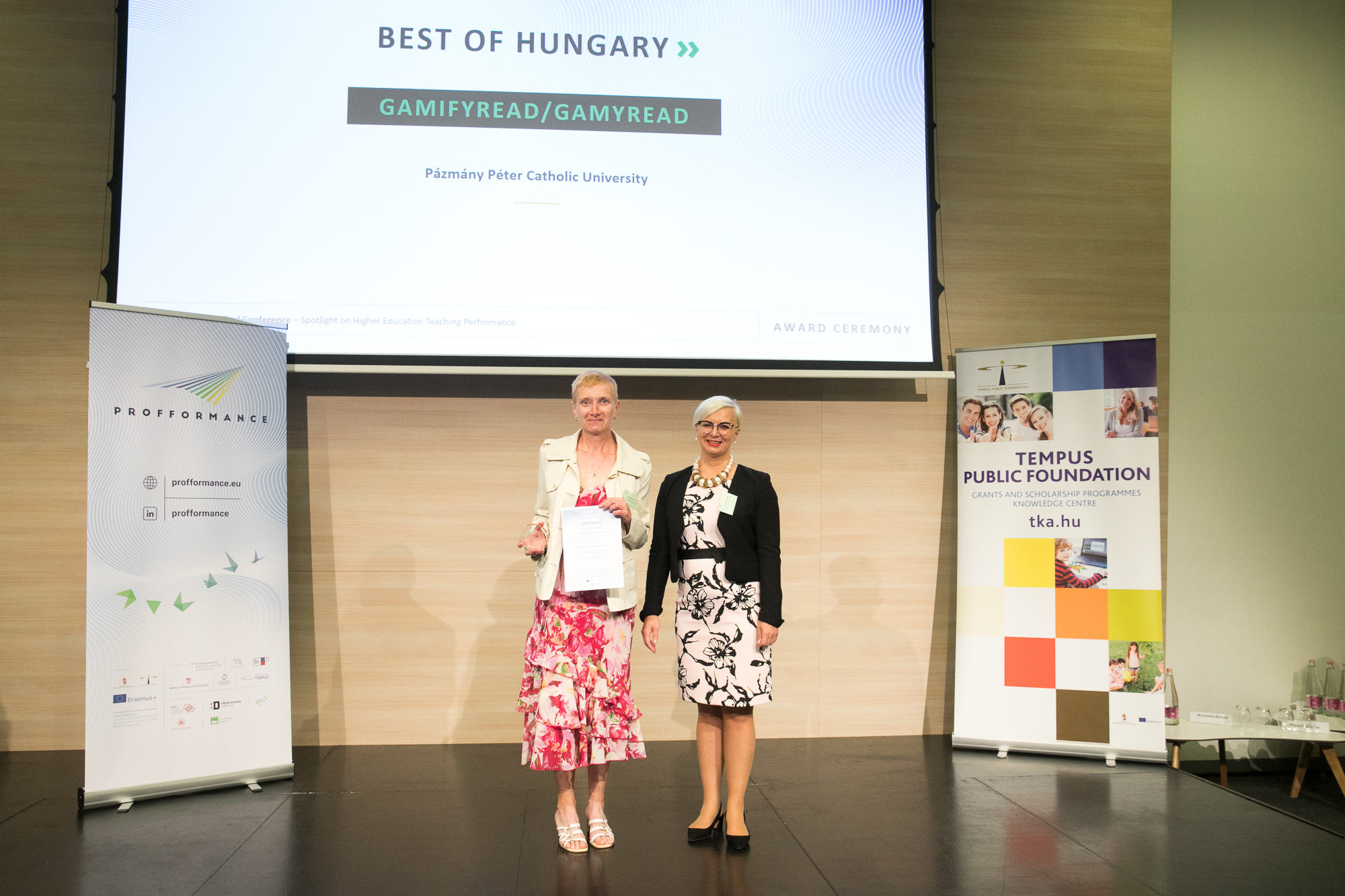
Best of Serbia >> SERVEDU - Ljiljana Markovic (Serbia)
- Service-learning in EFL teachers’ education
